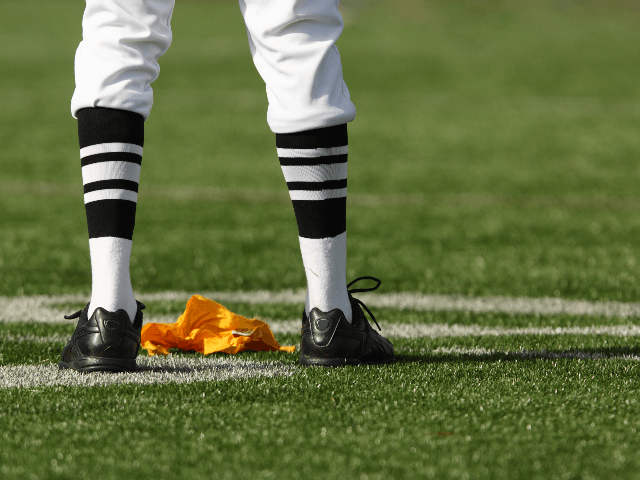A doctor saved a football referee’s life after he had a sudden heart attack while on the field recently.
Dennis Bennett, 69, had no idea what would take place when he stepped onto the field to referee a high school football game in North Texas.
“I was the umpire who was in the middle of the field behind the defense. I was giving the ball back after the play to set it for the next down, and all of a sudden, the referee who tossed me the ball kinda went blurry,” Bennett told KRLD’s Susy Solis.
“I went to place the ball on the ground and the next thing I knew, I had the medical staff standing over me,” he said.
Thankfully, Dr. Andrew Parker, an orthopedic doctor at Texas Health Allen, saw what happened and rushed to help Bennett.
“So we ran out there on the field and realized that not only was he down because he was injured, but he was completely unresponsive. I got 911 activated and by that time I had been able to assess him and had realized that his pulse was pretty thready and fading,” Parker said.
The doctor knew that time was of the essence, so he immediately jumped into action. He and several others used an automated external defibrillator (AED) to shock Bennett and restart his heart as he lay on the field.
“His pulse was still very difficult to find, so we started CPR at that point. It only took about one or two cycles of CPR luckily, before he started to come to and regain consciousness. We got a pulse back and a few minutes after that, the paramedics arrived and the ambulance had arrived.”
Bennett was taken to the hospital and a defibrillator was put into his heart. He is now back on his feet and said his wife and daughters are grateful for Dr. Parker’s life-saving actions.
“There’s so many emotions and so many things to say but obviously, you know, a thank you doesn’t seem to be quite enough in this situation for actually saving my life because they said it was what they call SCD, sudden cardiac death, and they brought me back,” he said.
Dr. Parker praised those on the scene who helped him save Bennett’s life.
“It wasn’t just me, it was a whole team of people out there. We’re grateful that we could be there for him,” he concluded.
SCD occurs when the heart’s rhythm changes and is the “largest cause of natural death in the U.S., causing about 325,000 adult deaths in the U.S. each year. SCD is responsible for half of all heart disease deaths,” according to WebMD.

COMMENTS
Please let us know if you're having issues with commenting.